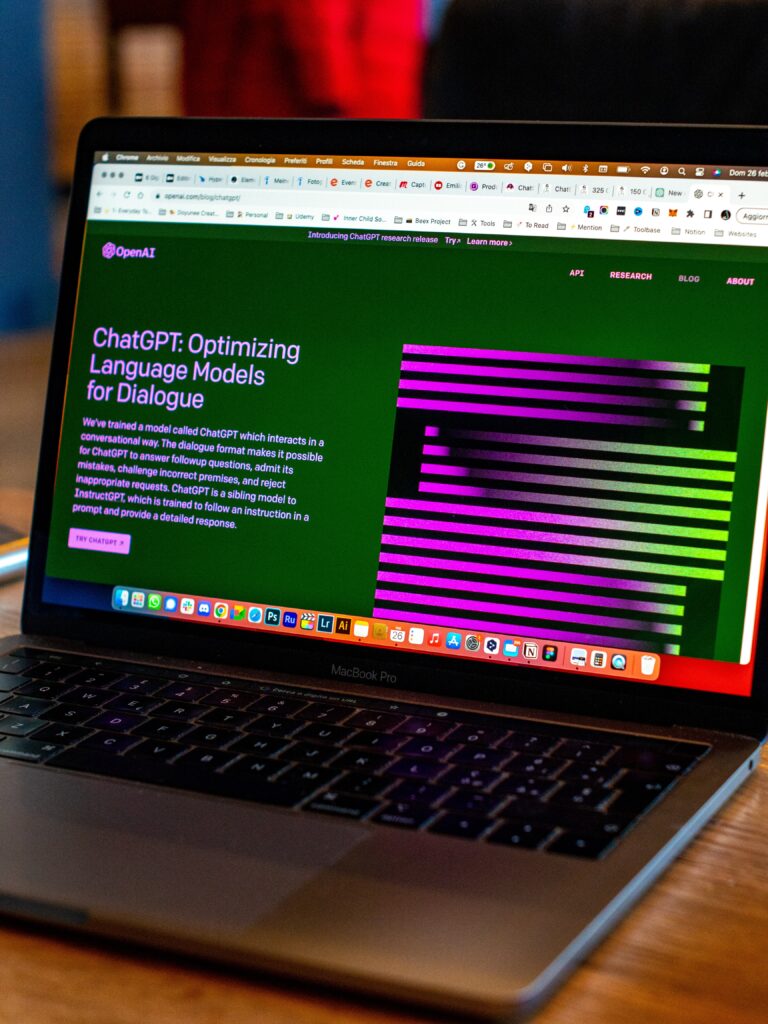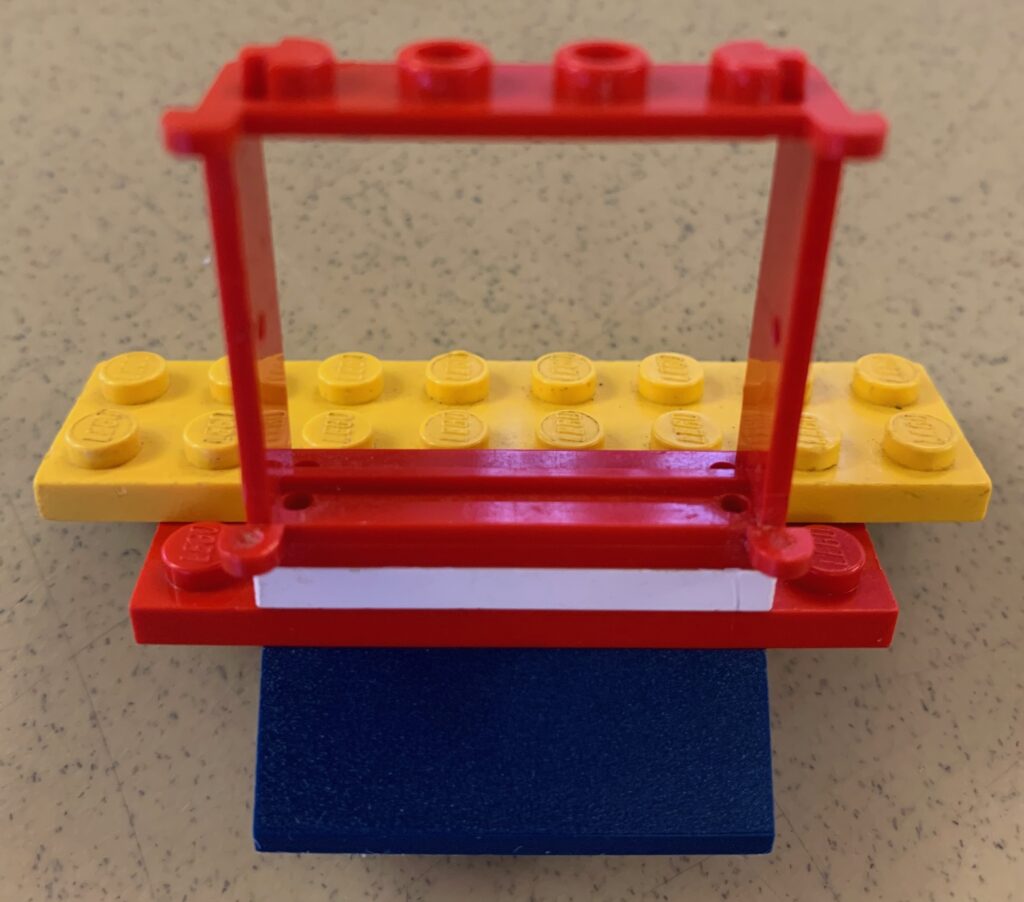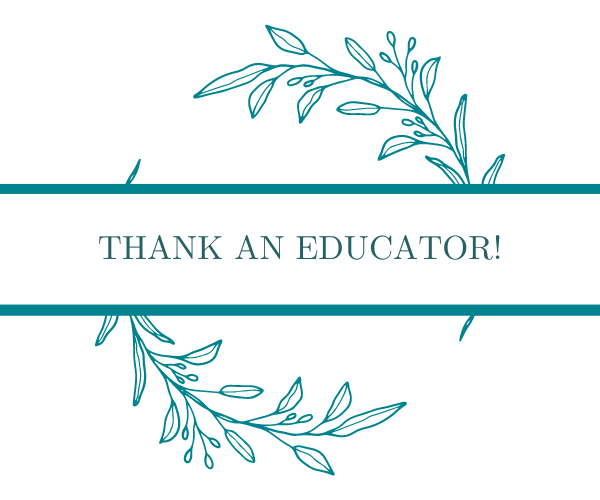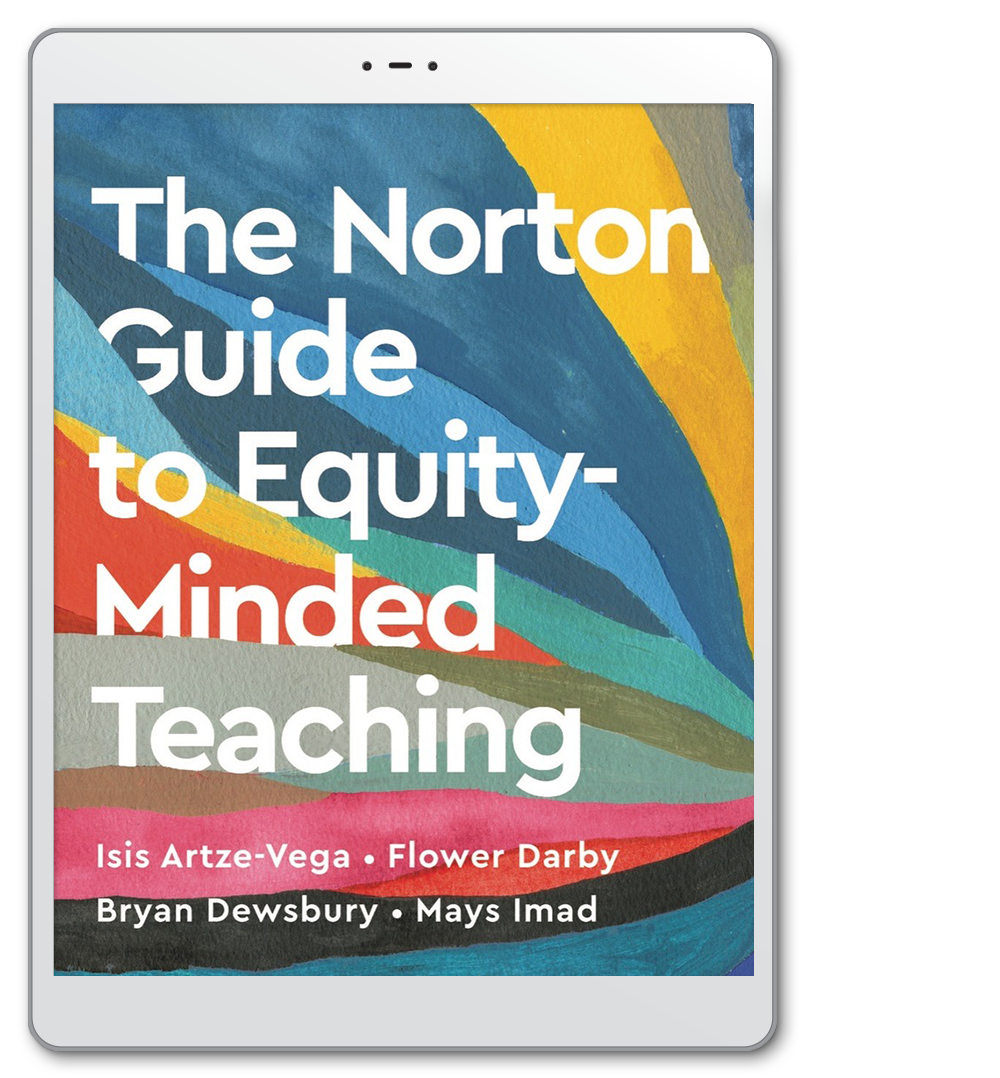January 2024 | Issue 6 | Volume 1 | Previous Issues
The Spring 2024 Syllabus Template
The Spring 2024 syllabus template [Word document] is still available for download. If you’ve used a previous semester’s template, the cover page gives you information about what’s different in this template, and therefore, what updates you may want to make from last semester.
Teaching in the Age of Generative AI Webpage & Workshops

The use of AI, as you may know, has begun to proliferate into many aspects of daily life and the field of higher education is no exception. As a result, the Center for Teaching & Learning Innovation has developed a new Generative AI webpage that describes how this technology works, its implications, ideas for incorporating it into the curriculum, considerations for academic integrity implications, and more.
We hope it is helpful to members of the faculty. Students need their VTSU education to include learning about Generative AI, which will require growth and learning for all of us. If there are resources you’d suggest adding, please send us a quick email (ctli@vermontstate.edu) with your ideas.
Additionally, the CTLI will be hosting workshops in February for faculty who are interested in exploring Generative AI. See the workshop schedule at the bottom of this newsletter for dates and to sign up.
Mark Your Calendar! Keynote Speaker Robin DeRosa

The CTLI is pleased to announce that on Friday, April 26 from 12:30-2:00pm, Robin DeRosa, will be delivering a keynote address for VTSU staff and faculty titled “Teaching Toward an Open Future.” This session will be on Zoom and recorded for anyone who cannot make it.
Session Description: Higher Education is in flux. Sometimes it feels like change is the only constant in our work lives as faculty and staff. There can be pressure to innovate, as well as anxiety about what might be lost if we radically transform our practices. We might even wonder if the values that motivate us as scholars, teachers, or support staff are reflected in our institutions, given how constrained they are by the ebb and flow of politics and markets. In this presentation, Robin will propose that we use Open Education as a bridge to help us cross from higher education’s current challenges into a more hopeful future where our colleges and universities are vehicles for the public good, powered by the people who work and learn within them. By aligning our values with our pedagogies and linking the university to the communities that surround and sustain it, we can imagine a way forward and design our daily work to bring us one step at a time toward the higher education that our students deserve.
While this session ties to our F2F+ OER efforts (read below), it should also be inspiring, uplifting, and empowering for any educator at VTSU.
Please register for this keynote to receive the Zoom link and calendar invitation.
DEI in the Gen Ed: Updates from Faculty Retreats
On January 9 and 11, the CTLI hosted retreats attended by 40 faculty to kick-off our collective work on incorporating DEI Outcomes in the gen ed curriculum. In general, the feedback from participants was positive.
We started each day contextualizing why we’re embedding DEI Outcomes in the general education curriculum. Provost Atkins made direct connections to the VTSU mission and in particular the Diversity, Equity, Inclusion, and Social Justice (DEISJ) commitments core to the university’s values and operations. We then considered the purpose of the general education – to broaden students’ perspectives, knowledge, and skills – while considering an emphasis on career-readiness, which must include knowledge of DEISJ and and skills to engage with diverse people around the globe while making positive social change toward more just and equitable institutions and communities. The VTSU General Education Committee of the Faculty Assembly is working, this semester, on writing measurable program outcomes for the curriculum, including at least one related to DEI. They are also reviewing the breadth-area outcomes (shared with CCV) and will be seeking faculty input over the coming weeks on the program and breadth outcomes. With this context, at the retreats, we found it useful to consider three areas of DEISJ-readiness: professional, civic, and personal, and we encourage you to think about how your gen ed course(s) might allow for deeper learning in one or more of these areas.
The CTLI stressed the developmental, iterative nature of this work, acknowledging the need for faculty professional readiness (knowledge, confidence, skills). The upcoming Spring/Summer 2024 paid professional development opportunity (see below) to work with colleagues will put you on solid footing for introducing DEI learning in your Fall 2024 gen ed courses and be something to build on in future semesters.

To move from the big-picture to course-level thinking, we asked each attendee to bring at least one resource relevant to teaching DEI Outcomes in the Gen Ed. Most participants contributed at least one idea, often found in the VSCS Library databases – many disciplines have teaching-focused journals that include articles on strategies and content related to DEI in the classroom. If you have an idea to contribute, please feel free to add it to this document. In the near future, we will turn these resources into a webpage that lives on the CTLI website.
I think looking for resources was helpful. It allowed me to do some additional learning and to focus more on my discipline.
Faculty participants’ reactions to disciplinary library/internet research in preparation for the retreat.
Doing the homework was a very useful task. It reinforced the validity of the steps I had already taken and presented new resources and ideas.
We also reviewed ideas from other institutions (Carnegie Mellon University, Western University of Health Sciences, Front Range Community College, and San Diego State) for examples of how to embed DEI content and inclusive teaching practices throughout the curriculum. In small groups, participants shared their resources, ideas, concerns, and questions about how to authentically begin the work of incorporating DEI outcomes into courses.
At the Randolph retreat, we spent time in the early afternoon with a session on Effectively Facilitating Difficult Dialogues, recognizing that DEISJ topics may challenge students to consider new perspectives and require academic engagement with social issues. For example, whether you’re having students “us[ing] calculus to model income inequality, involving such mathematical concepts as the Lorentz curve, curve fitting and numerical integration techniques” (Math for Social Justice) or having education students read books about anti-racism in elementary schools and leading conversations with young students (Vermont Student Anti-Racism Network), it is important to be prepared to help students understand the pedagogical choices you’re making and how to engage in respectful, challenging conversations. The CTLI has developed this webpage of Strategies for Planning and Engaging in Difficult Dialogues as a resource for you; we will also be offering workshops on this topic in the coming months.
We ended each retreat with some individual reflections and group sharing. Embedding DEI outcomes in every general education course is a big project; it will be accomplished with collaborative effort, shared resources, intentional planning, and building on successes over several years. The CTLI looks forward to working with you, learning alongside you, and providing support and resources as we move this endeavor forward.



Particular thanks goes out to the faculty volunteers that helped CTLI staff to plan and facilitate these retreats: Chris Boettcher, Jacob Park, Michael Reeves, and Linda Wise. Your enthusiasm, contributions, and wisdom are deeply appreciated.
Paid Faculty Professional Development Opportunities
Each of these 3 opportunities (occurring in Spring and/or Summer 2024 provide a generous grant-funded stipend ($1750) for faculty who participate in and complete the course or curriculum development work. Click on each header to expand for details.
These professional development experiences are meant to support you with work you have to do, as they are aligned with VTSU priorities, and acknowledge the time and effort you will spend by providing compensation. If you have questions about any of them, please reach out to the CTLI at ctli@vermontstate.edu.
DEI Outcomes in the Gen Ed
As you likely know, part of the phased-in Gen Ed requires diversity, equity, and inclusion (DEI) outcomes in the Gen Ed, starting in Fall 2024. With the endorsement of the Faculty Assembly Gen Ed committee, the CTLI is offering paid opportunities to support this work through the generous support of the Castleton Title III grant.
| Limited Funding Availability – Apply as Teams* of Instructors DEADLINE EXTENDED TO FEBRUARY 14 OR UNTIL ALL SLOTS ARE FILLED – APPLICATIONS WILL BE REVIEWED ON A ROLLING BASIS) |
| Participate in Teams any time February 1 to August 1, 2024 |
| Complete a 5-module Inclusive Teaching Class (12-24 hours) •Meet at least 5x times as a group to discuss what you’ve learned and how you can apply it to your VTSU teaching •Submit individual Verified Certificate for completing the 5 modules •Submit a group reflection Compensation: $750 per team member + $100 registration for class |
| Develop DEI Curriculum for Gen Ed Courses •Write, develop, revise, and practice (with peer feedback) course outcomes, assessments, and lesson plans. •Submit individual course plans •Submit a group reflection Compensation: $1000 per team member |
| *Teams of 2-5 instructors must apply and be accepted. •Each Team must have a person in the Team Lead role (additional support, responsibilities, and compensation). •First-round deadline = January 24 at 12noon. |
Please apply with a team of colleagues or apply as an individual (to be assigned to a team) to develop course-level outcomes, content, and learning experiences for your Gen Ed course(s). Selected teams will take an Inclusive Teaching course and then use what they’ve learned to plan their fall Gen Ed courses.
If you would like to join a team, but do not want to self-form a team, please use this form to indicate your interest, and the CTLI will facilitate the forming of teams from the individuals who sign up.
As of January 25, there is funding still funding for 16 people to participate (16 slots have been filled).
F2F+ Option 1: Course Development
The CTLI applied for a new round of funding for a project titled “Prioritizing Access Through ‘Face-to-Face Plus’ Expansion + OER Adoption,” and we were notified in the past week that our application was approved for $216,261, the bulk of which is allocated for faculty stipends. The grant was received from the Davis Educational Foundation established by Stanton and Elisabeth Davis after Mr. Davis’s retirement as chairman of Shaw’s Supermarkets, Inc.
| Limited Funding Availability – Apply as an Individual (due Feb 21) |
| Attend a full-day kick-off retreat on May 22. Compensation: $300 |
| Complete a 4-week ‘Intro to F2F+ Teaching’ course in June •4-6 hours per week of attendance and homework (synchronous, offered in the F2F+ modality) •Complete a F2F+ course redevelopment map •Complete at least 2 F2F+ class lesson plans (practice 1) •Work with a Mentor to plan, revise, and develop F2F+ teaching Compensation: $1250 |
| Summer & Fall Continuation Work •Complete 4 additional F2F+ lesson plans that address active learning & multimodal engagement in July •Practice with classroom technology •Work with a Mentor to plan, revise, and develop F2F+ teaching •Contribute to ”lessons learned” through focus group participation, surveys, or semi-structured interviews Compensation: $500 |
Please apply as an individual by 12noon on February 21 to convert a course to the F2F+ modality. Selected individuals will take a 4-week synchronous course in June 2024, during which they’ll map out the outcomes, assessments, and learning activities for a F2F+ course then design lesson plans for teaching in the F2F+ modality. Additional support will be provided for effective integration of technology. Faculty who have participated in this program in the past are eligible to apply, as long as you are converting a new class that you haven’t previously converted.
There are stipends to support 40 faculty between the two Davis Educational Foundation-funded opportunities for F2F+ classes.
F2F+ Option 2: OER Conversion
The CTLI applied for a new round of funding for a project titled “Prioritizing Access Through ‘Face-to-Face Plus’ Expansion + OER Adoption,” and we were notified in the past week that our application was approved for $216,261, the bulk of which is allocated for faculty stipends. The grant was received from the Davis Educational Foundation established by Stanton and Elisabeth Davis after Mr. Davis’s retirement as chairman of Shaw’s Supermarkets, Inc.
| Limited Funding Availability – Apply as an Individual (due Feb 21) |
| Attend an OER keynote and kick-off retreat in May or June (date TBD based on participant schedules). Compensation: $300 |
| Work with CTLI staff and Librarians to convert a F2F+ class to no- or low-cost course materials and textbooks in June •Research Open Educational Resources (OER) relevant to course and discipline •Determine if OER materials will be adopted, adapted, created, or a combination •Select and create OER materials, ensuring costs for students will remain under $50 •Create resources and activities to accompany OER materials Compensation: $1250 |
| Summer & Fall Continuation Work •Participate in a Focus Group with other faculty OER who’ve converted a class to OER •Have students complete a survey about their OER experience •Share what you’ve learned through presentations, case study write-up, lessons learned tips, etc. Compensation: $500 |
Please apply as an individual by 12noon on February 21 to convert an existing F2F+ course to no- or low-cost textbook/materials for students. With support of librarians and CTLI staff, you will explore existing Open Educational Resource (OER) materials to adapt or adopt; if no relevant materials exist, you will have the opportunity to create your own (or some combination of adoption, adaptation, and creation). Faculty who have adopted OER in the past have appreciated the ability to customize content to suit their outcomes, students, and interests. Students appreciate the emphasis on affordability.
There are stipends to support 40 faculty between the two Davis Educational Foundation-funded opportunities for F2F+ classes.
Thank an Educator Program – First Semester of Results

In December 2023, the CTLI launched the inaugural semester of our ‘Thank an Educator’ program. The VTSU Thank an Educator program provides a way for undergraduate and graduate students as well as alums to send a note of thanks to educators who have had a meaningful impact on their education and lives. After grades are due, the CTLI then sends out the personalized messages to each recipient; students may remain anonymous or identify themselves.
We were thrilled to receive 64 submissions from students and alums, sent to staff and faculty educators on all five of our campuses. We hope to see this number grow with each subsequent semester.
The comments students submitted underscore the impact of the day-to-day work that ALL educators engage in at VTSU.
These are a few excerpts from submissions that highlight the ways that excellent teaching, compassionate mentoring, nonjudgmental staff, and professional competence make a difference in our students’ lives.
“Words cannot describe how thankful I am for what you do at VTSU. You helped me choose a career, get into a Gradate program at VTSU, and you helped me be successful throughout my time here in Undergrad. I always know that I can reach out to you with any problems that I have and you always help me out. Thanks for everything that you do and being an amazing professor.”
“I learn so much more than just the material in class from you. I don’t think I would still be in college if it wasn’t for your never-ending care for your students’ success.”
“This professor made it easy to come to school and attend class every day. She came in with a positive attitude and made me feel engaged each day. Attending a new university can be hard and she made it more comfortable. I can’t thank her enough for all the help she has given me and the confidence to become the best nurse I can be.”
“Thank you for giving me the courage and motivation to keep persevering through the hardest times of my life. You give me confidence in myself when I feel like I have no support outside of school.”
“You are approachable, fair, and outgoing as an educator and it makes me feel involved and validated in my efforts. I feel as though I am a better student for having experienced your style.”
We will relaunch the ‘Thank an Educator’ program in April 2024. We’d appreciate your help spreading the word – after all, the number of submissions we can accommodate is unlimited! We love having the honor of sharing these positive affirmations; as one recipient said, “This message has warmed my heart and reminded me of the reasons why I love teaching and working with students.”
From the CTLI, we thank YOU for the daily efforts you make to support all your students.
University Partners – Spring 2024 Updates
Library Services – Embedding Credo InfoLit into Courses
Last year the VSCS Libraries subscribed to Credo InfoLit, a resource focused on helping faculty embed information literacy learning objects into their courses. These objects include videos, tutorials, and quizzes that can be embedded into Canvas courses.
Since then, VSCS liaison librarians have prebuilt Canvas modules using these Credo Learning objects to support common library and information-literacy topics. Current topic modules include:
- The Research Process
- Citations
- Plagiarism
- Scholarly Sources
- Digital Searching
- Evaluating Sources
We have also developed course-specific modules designed for general education courses including First Year Seminar, Dimensions, and English Composition.
These modules are available through Canvas Commons for faculty to embed in their courses. For more information see the Canvas Instruction Tools & Learning Objects page on our library website. You can also find our prebuilt Canvas course modules by going to Canvas Commons and searching for “VSCS Libraries.”
To learn more about embedding Credo Infolit into your classes or integrating information literacy in your classes, contact your liaison librarian!
Learning Technologies Team – Drop-In Hours, Pilot Opportunities, and Canvas Accessibility
Drop-In Hours
Join the Learning Technologies team throughout the Spring 2024 Semester for drop-in, “come anytime” assistance with Canvas, YuJa, and Zoom. Click the following link to join them (and your colleagues) in Zoom to access the weekly sessions listed below: https://vsc.zoom.us/j/86147816869 (861 4781 6869)
- Canvas: Mondays, 12-1 p.m.
- YuJa: Tuesdays, 12-1 p.m.
- Zoom: Wednesdays, 12-1 p.m.
- Your Choice: Thursdays, 12-1 p.m.
For 1:1 assistance, please use the ServiceDesk, rather than email, to ensure you are connected with the best person to support your needs: https://servicedesk.vsc.edu/.
Pilot Opportunities
IT Shared Services Academic Applications Team is looking for faculty to pilot new technology tools for feedback. This spring they are seeking volunteers to try out Microsoft Stream and Apporto.
Microsoft Stream
Microsoft Stream is a video storage platform included as part of our Office 365 account. IT is looking at the effectiveness of this tool for video storage as a potential replacement for YuJa. Faculty participants would complete a number of activities using Microsoft Stream, including viewing and creating short videos, to assess the ease of use and identify any benefits or disadvantages of this service. The pilot is anticipated to start in February and run for a flexible eight weeks.
Apporto
Apporto is a virtual desktop system that provides users remote access to software traditionally offered in a classroom lab environment. Apporto is being explored as a potential replacement for classroom lab spaces, as students would be able to access necessary technology through a personal device. There are TWO pilot opportunities regarding the use of Apporto.
Apporto Pilot 1: (limited spaces) There are currently a few faculty piloting Apporto with their classroom students, who use the Apporto environment to access course software, both in and out of the classroom. IT has space to add a few more courses to this pilot, expanding understanding of this software. This pilot would last the entire semester..
Apporto Pilot 2: IT would love to expand understanding of Apporto by having faculty explore and test the environment. Participants in this pilot would dedicate time to completing activities traditionally completed by their students in the Apporto environment. This pilot aims to identify if the Apporto environment can support software in the way you need students to use it (both inside and outside of the classroom). This pilot will run during the semester but can be completed at your own pace.
If you are interested in any of these pilots, please complete the Apporto and Stream Pilot Participation form – Spring 2024 semester.
Accessibility Standards – Canvas Navigation Colors
During the break, the colors in Canvas were adjusted to reflect accessibility standards better. The second layer menu is now a Teal color, which should carry through to course links, allowing users to discriminate linked text more easily.
Academic Support – Surveys & Grants
Jen Jones, the Assistant Vice President of Academic Support and Educational Opportunity Programs, would like members of the faculty to know that Fall 2023 student survey results will be shared during the month of January. The results will be reviewed by her staff with an objective of improving the services they provide.
In addition, Academic Support will be writing grant proposals for the legacy TRIO SSS grants as well as some additional VTSU-wide grant proposals. A short faculty survey will be issued this spring to gather information that will be helpful in developing the proposals.
Multilingual Student Services Thanks You for Your Support

Dear Faculty Members,
Happy New Year. I hope this message finds you well. I am writing to express my profound gratitude for your ongoing support and efforts in referring our multilingual students to the Multilingual Student Services (MSS). Your actions have significantly contributed to the betterment of their academic journey and overall experience at our institution for multilingual students, including domestic American students who use more than one language in their daily life and international students.
“281 hours 15 minutes” was the cumulative amount of time of one-on-one and group English language tutoring provided to multilingual students at VTSU during the Fall of 2023. The language tutoring is offered in-person on Castleton campus and virtually for other campuses.
For the first time at VTSU, MSS piloted two additional services in addition to English tutoring:
[1] a separate language support section for English language learners on the university library: https://libraries.vsc.edu/subject/writing/multilingual
[2] The second one is a personalized evaluation and diagnosis of support for each multilingual student. A sample example of evaluation could be found at: A sample of student evaluation.pdf. Thanks to the open-mindedness of faculty members, 8 hours of separate test proctoring for international students have been piloted at MSS office on Castleton campus. All multilingual students who joined in the initiative of taking tests at MSS received linguistic support and additional time for natural translation witnessed significant improvements in learning outcomes. By Spring 2024, 80% of them would no longer require this specialized assistance as their English language skills would have sufficiently improved, enabling them to effectively assimilate into the higher education environment. I anticipate that additional faculty members will lend their support to this idea.
Your keen awareness and understanding of the unique needs of multilingual students are praiseworthy. By guiding them towards the services we offer, you have not only acknowledged the challenges they might face but have also played a pivotal role in providing them with the necessary tools and support to thrive. The impact of your gesture extends beyond academic support; it fosters a more inclusive and nurturing environment for all students, particularly those navigating the complexities of studying in a second non-dominant language.
Thank you once again for your invaluable collaboration and for being such an integral part of our mission to support and empower our diverse student body. Please continue to direct any students who you feel could benefit from our services to us, simply by writing us an email at Mary.Dinh@VermontState.edu. More information about MSS, as long as its library of resources, can be found at: VTSU | Multilingual Services.

Warm regards,
Mary Dinh, Ph.D.
Assistant Director of Multilingual Students Services
Spring 2024 Book Group

This month’s recommended reading is also our spring book group read! Join your colleagues reading and discussing The Norton Guide to Equity-Minded Teaching.
Written by renowned teaching and learning experts – Iris Artze-Vega, Flower Darby, Bryan Dewsbury, and Mays Imad – this guide offers concrete steps to help any instructor striving to ensure that all students – and, in particular, historically underserved students – have an equal chance for success. This practical resource includes actionable tips, grounded in research, for teaching college classes online, in person, and everywhere in between. Plus, the book is relevant to teaching in any discipline!
What does it mean to join the Book Group? We’ll be meeting four times during the semester for 90 minutes per session. Prior to each meeting, you’ll be reading sections of 30-50 pages and selecting a quote and/or idea from the guide that you’d like to discuss with the group.
The deadline for joining the spring group is Wednesday, February 7th, 2024, and interested educators can sign up by filling out this Book Group RSVP Form (you must login to your VSC account to complete the form).